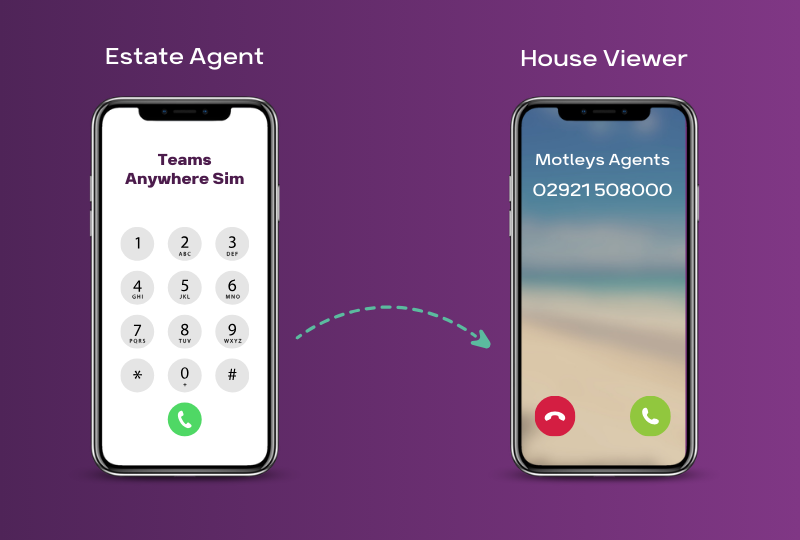
The 12 Benefits Of Cloud-Based Phone Systems
12 Benefits Of Cloud-based Phone Systems
In today's interconnected world, businesses are always looking for efficient ways to communicate, collaborate, and grow. Enter cloud-based phone systems. At its core, a cloud-based phone system, sometimes referred to as VoIP (Voice over Internet Protocol) or IP telephony, is a technology that allows users to make calls using the Internet instead of traditional telephone infrastructures. The system harnesses cloud technology, wherein the data (in this case, voice) is stored and transferred over the internet, enabling businesses to access their phone systems from anywhere with a stable internet connection.
Now that we've laid down the basics, let's dive into the transformative benefits these systems offer:
Before committing to new technology, it’s important to understand how it’s going to benefit your business. Below, we’ve included 12 of the main benefits of VoIP phone systems.
1. Cost-Effective
Traditional phone systems often come with substantial upfront costs, including equipment, installation, and infrastructure. Conversely, cloud-based systems, with their as-a-service model, typically involve a predictable monthly fee. The absence of physical infrastructure means reduced ongoing maintenance costs, making them an economically sound choice for businesses of various scales.
2. Scalability
Business needs are never static. As they expand, contract, or pivot, their communication demands change accordingly. Cloud-based phone systems shine in this context, allowing businesses to easily add or reduce lines. This flexibility ensures that companies only pay for what they use, saving them from unnecessary expenses. For businesses with multiple locations, a cloud phone system can unify communication, making expansion smoother.
3. Enhanced Features
Beyond basic calling, cloud-based systems come equipped with a plethora of advanced features. Think of conference calls, auto-attendants, call queue visibility, and interactive voice responses. These not only refine the caller experience but also provide businesses with powerful tools to manage communications more effectively. As technology advances, new features are rolled out, ensuring businesses always have access to cutting-edge communication tools.
4. Mobility And Remote Access
The modern workforce is increasingly mobile. Whether it's remote work setups, travel obligations, or fieldwork, employees are often away from the office. What’s more, businesses can set up virtual offices in different regions, allowing them to establish a local presence without physical infrastructure. Cloud-based phone systems empower them to remain connected, allowing seamless communication from virtually any location with internet connectivity.
5. Reliability
Every minute of downtime can translate to lost revenue. Cloud-based phone providers understand this and typically offer impressive uptimes - sometimes as high as 99.9%, reflecting their confidence in providing uninterrupted service. Redundant server architectures mean that if one server fails, another instantly takes over, ensuring consistent service and removing the single point of failure.
6. Integrated Business Tools
Integration capability is a strong suit of cloud-based systems. Whether it's Customer Relationship Management (CRM) tools, task management platforms, or email services, integrating these systems can provide a unified and streamlined approach to business processes. Integration with platforms like Slack or Teams is even possible and promotes better team collaboration.
7. Enhanced Security
Digital security threats are evolving, and businesses need robust systems to guard against them. Cloud phone systems come equipped with advanced security features, including call encryption, secure voice protocols, and regular system updates to patch vulnerabilities. To ensure robust security, many providers conduct regular audits and threat assessments.
8. Environmental Benefits
As businesses become more environmentally conscious, tools that reduce carbon footprints become invaluable. Cloud-based phone systems, by reducing the need for physical infrastructure, significantly cut down energy consumption and e-waste.
9. Easy Maintenance and Upgrades
Gone are the days when businesses needed a dedicated IT team to manage phone systems. With the cloud model, service providers handle the heavy lifting, from routine maintenance to software upgrades, ensuring businesses always have access to the latest features without any associated hassles. Plus, routine data backups mean businesses don't lose essential communication logs or data.
10. Unified Communications
The ability to unify various communication channels is a significant advantage. By integrating voice, video, text, and more, businesses can foster better collaboration, improve client interaction, and streamline internal communication processes. Transitioning between communication modes (e.g., from a voice call to a video conference) can be done seamlessly.
11. Disaster Recovery
In case of unforeseen events like natural disasters, power outages, or other disruptions, cloud-based systems offer robust disaster recovery options. Data is routinely backed up in secure cloud storage, ensuring minimal disruption to business operations.
12. Customisation
Many cloud-based phone systems provide bespoke solutions. Businesses can customise features, integrate third-party apps, or even tailor the user interface to match their brand, ensuring a system that perfectly aligns with their needs.
Our Final Word
Cloud-based phone systems represent more than just a trend; they are shaping the future of business communication. By combining cost-effectiveness, flexibility, and a suite of powerful features, these systems offer businesses a pathway to enhanced operational efficiency and growth in the modern digital age. If you’d like to talk to us about our cloud-based phone systems, get in touch.
Further reading: What Is A VoIP Service Provider?






.jpg)



























.avif)




%20(4).avif)

%20(1).avif)
.avif)
.png)







.avif)
.avif)
%20(1).avif)
.avif)
.avif)